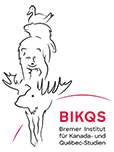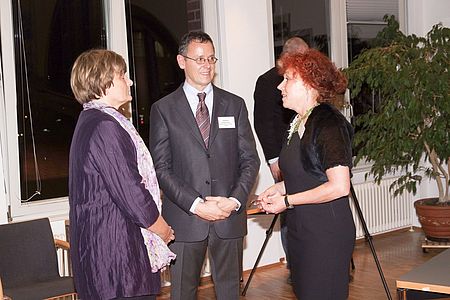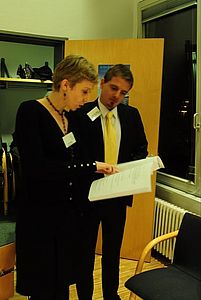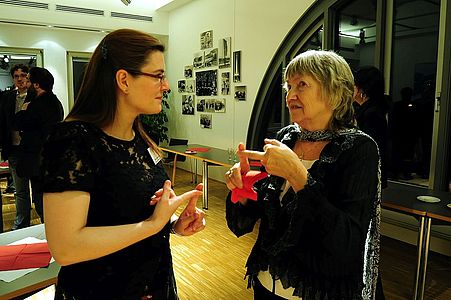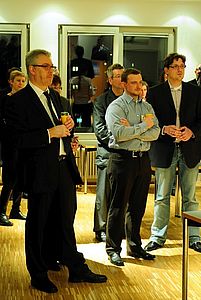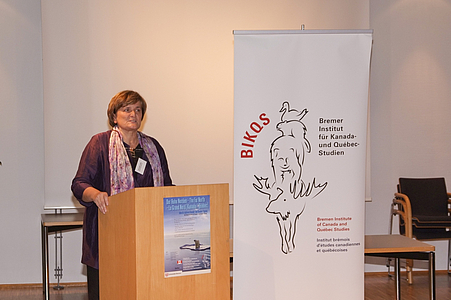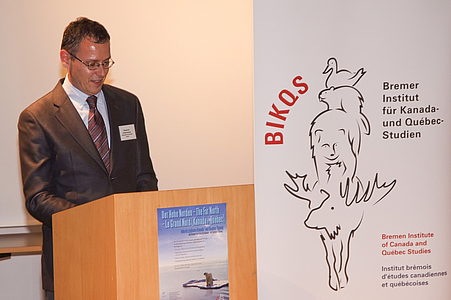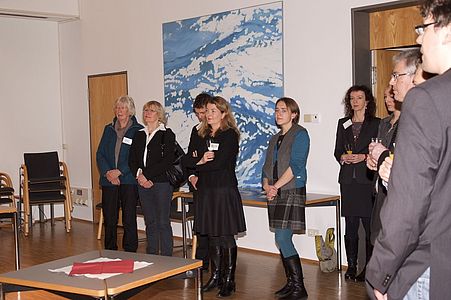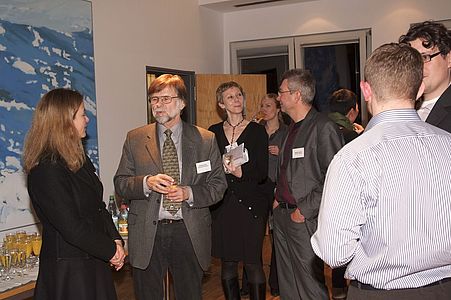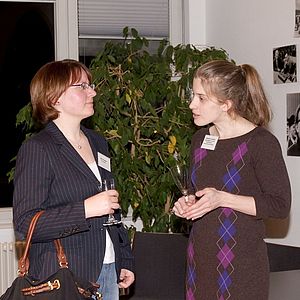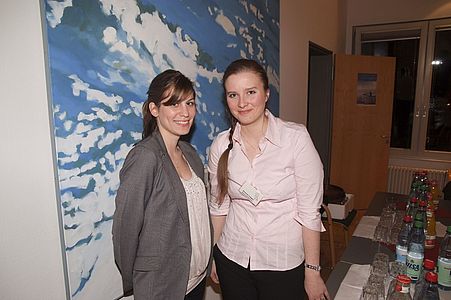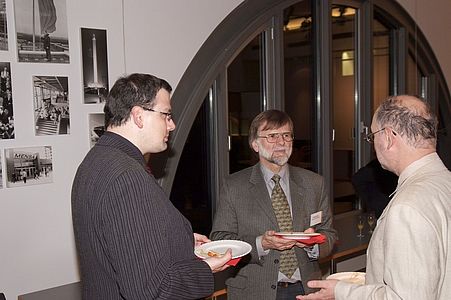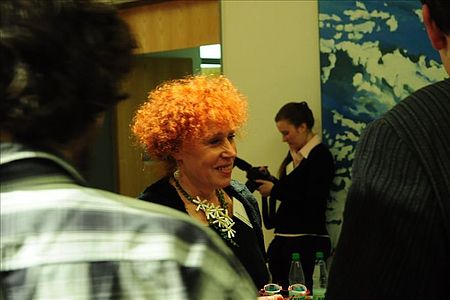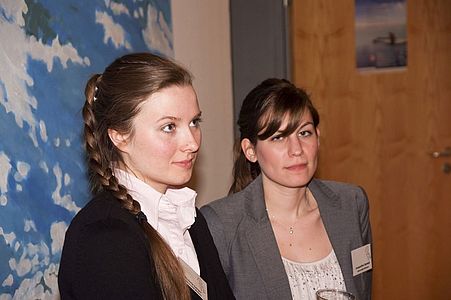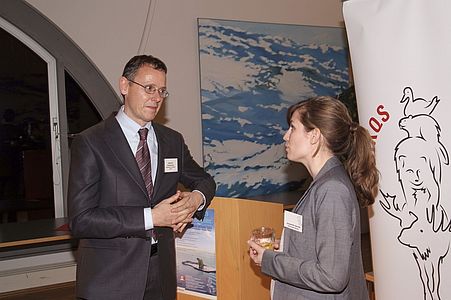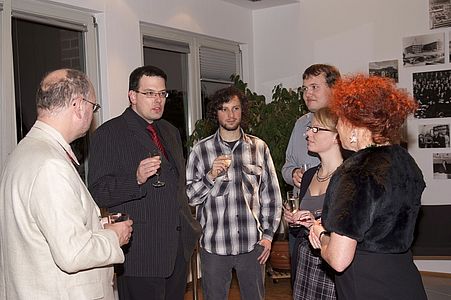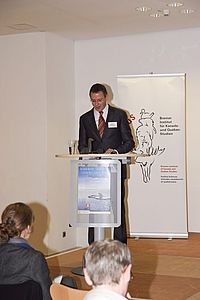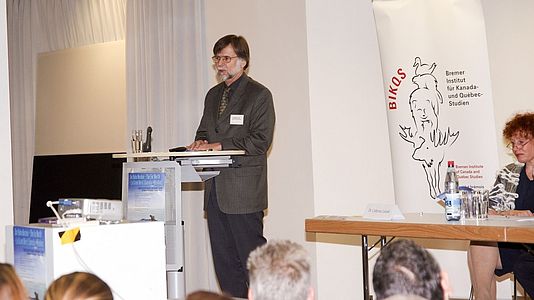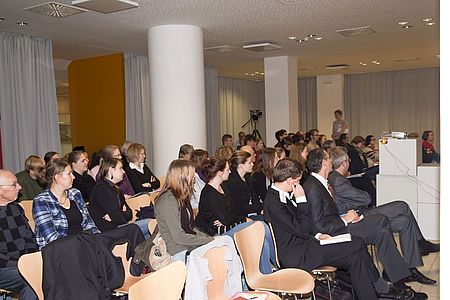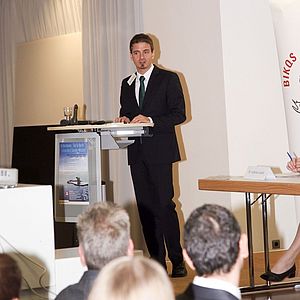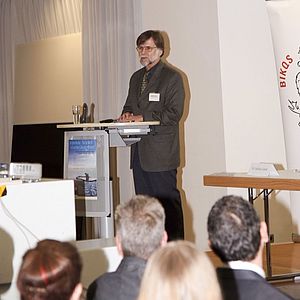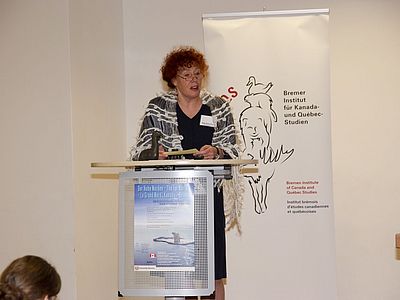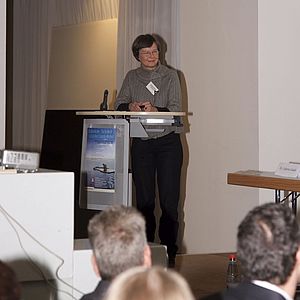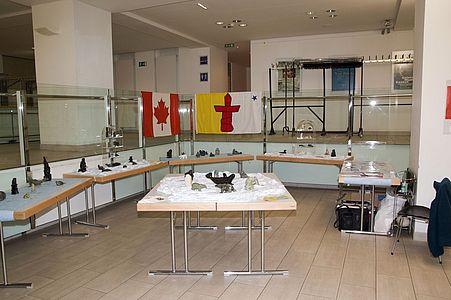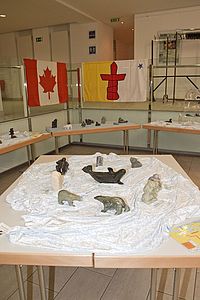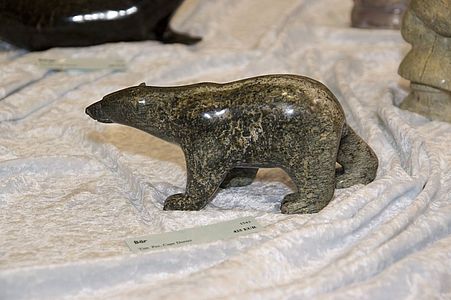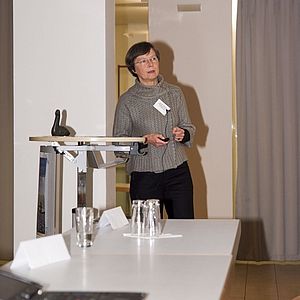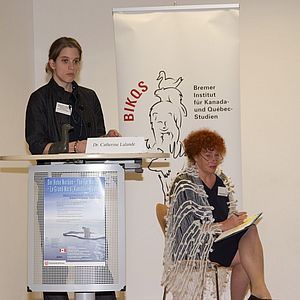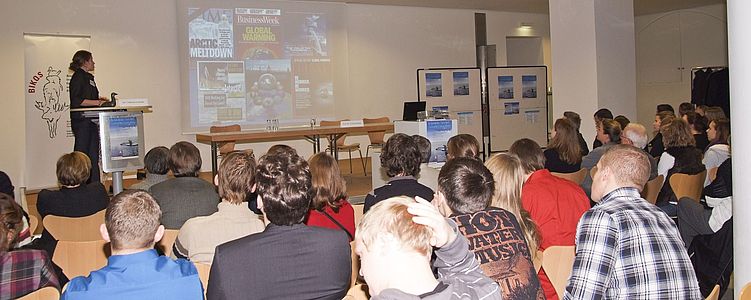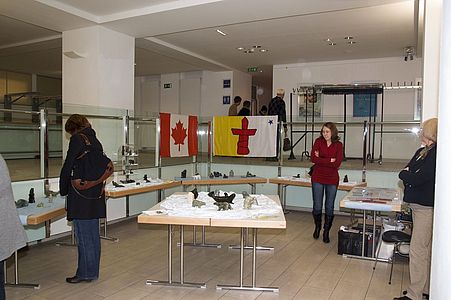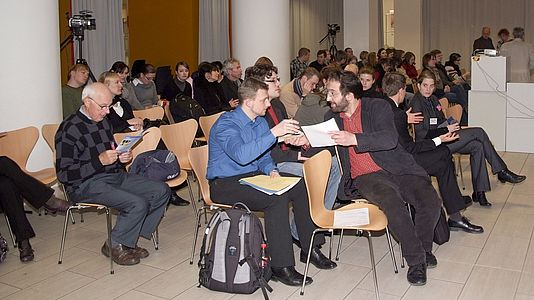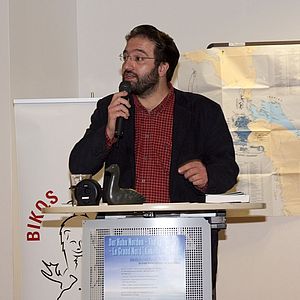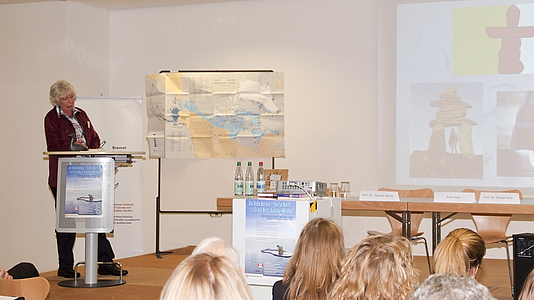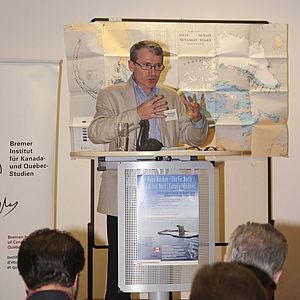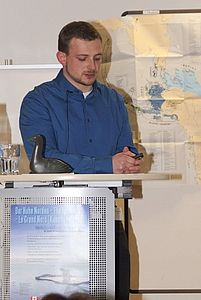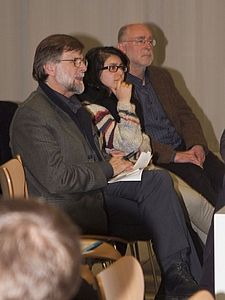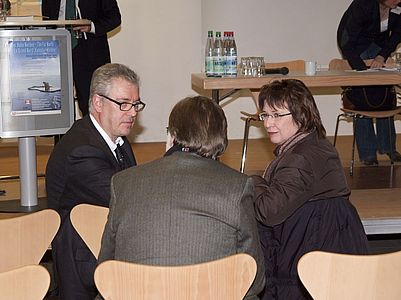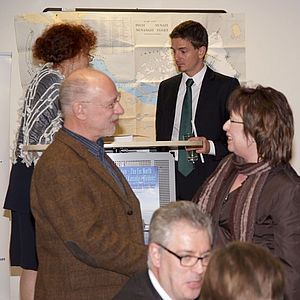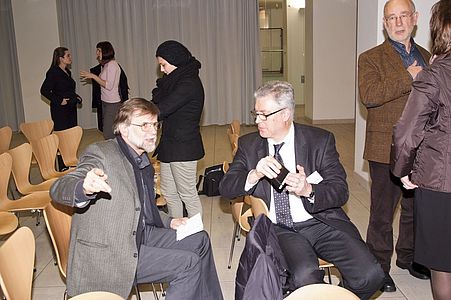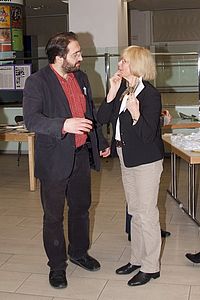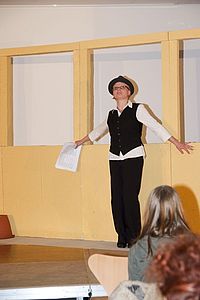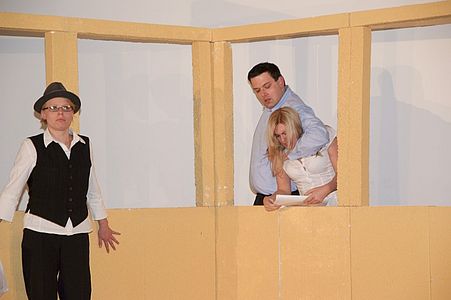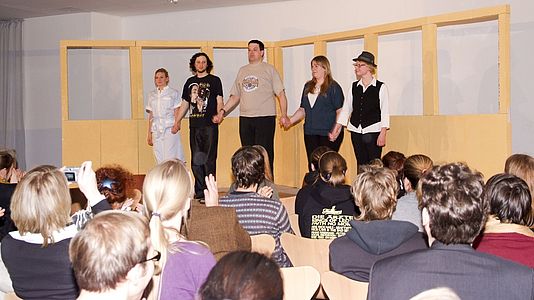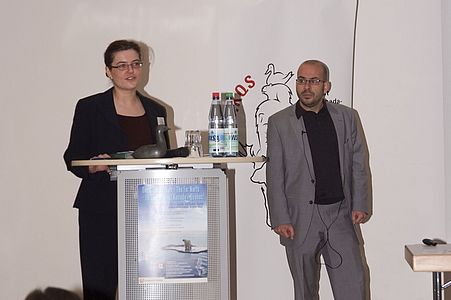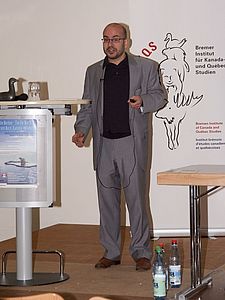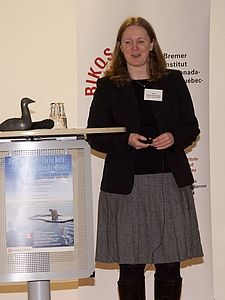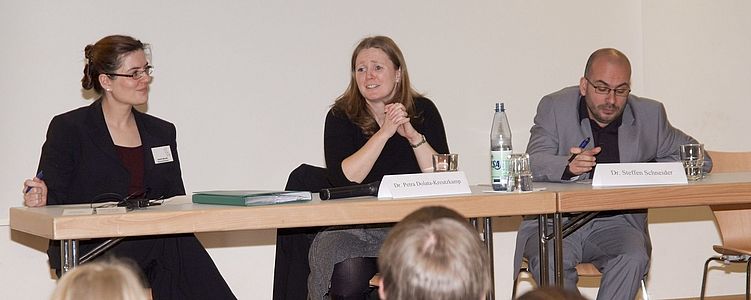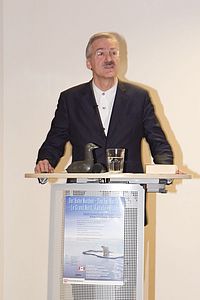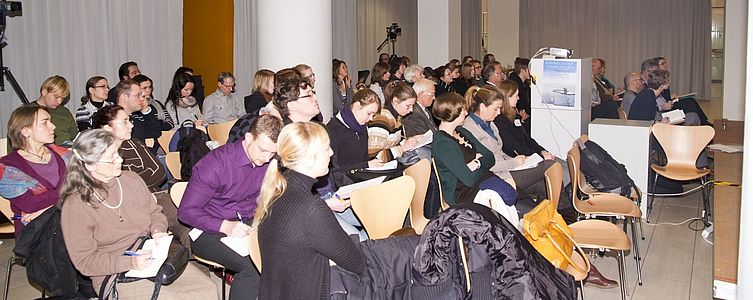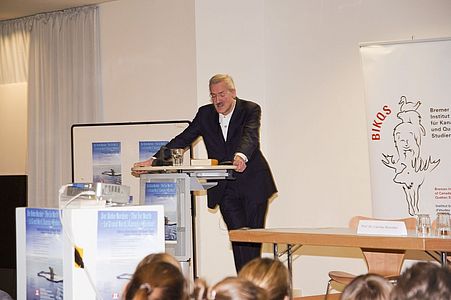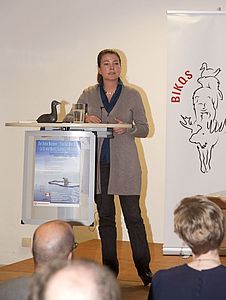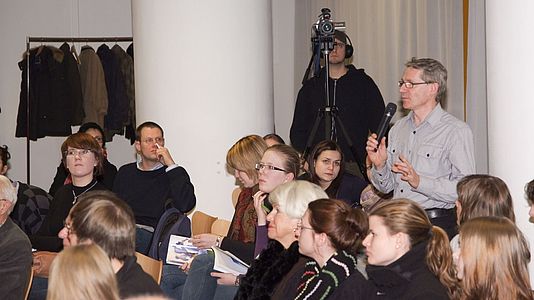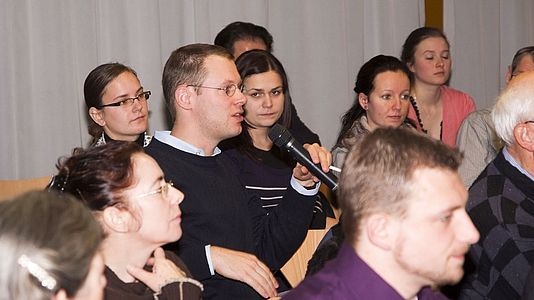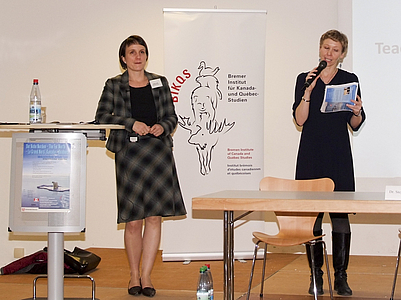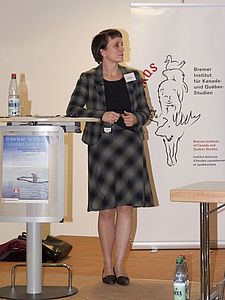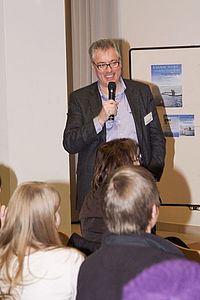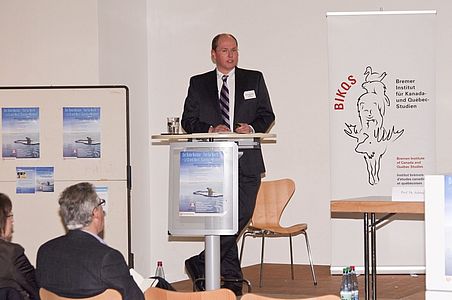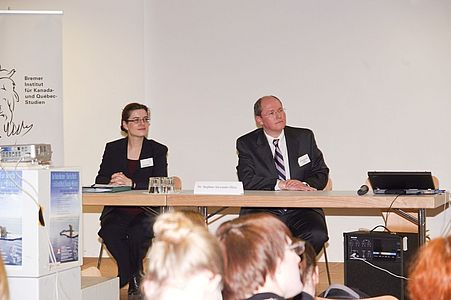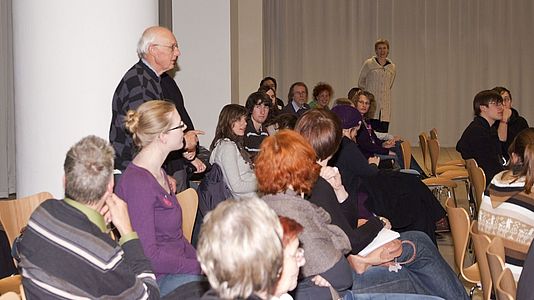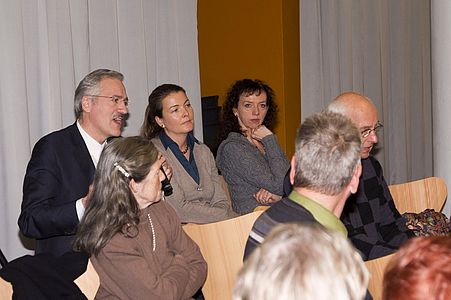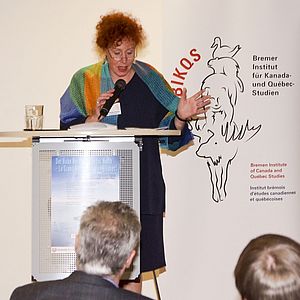Der Hohe Norden/ The Far North/ Le Grand Nord (Kanada/ Québec) 2010
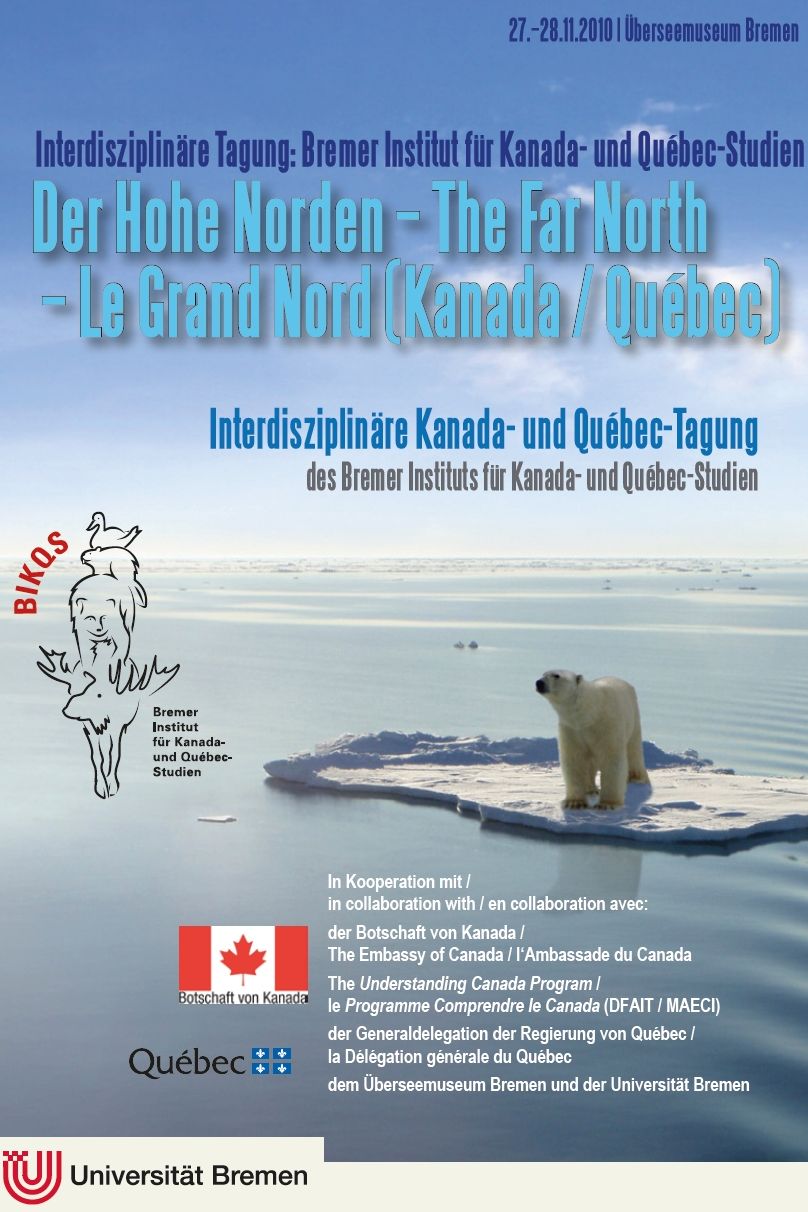
INTERDISZIPLINÄRE TAGUNG
27. – 28.11.2010 | ÜBERSEE-MUSEUM BREMEN, BAHNHOFSPLATZ 13
Der Hohe Norden kommt uns unaufhörlich näher. Er ist nicht mehr der entrückte Landstrich, für den sich höchstens ein paar Spezialisten oder Abenteurer interessieren, und auch seine Tage als eines der letzten unberührten Naturparadiese sind gezählt. Regelmäßig erreichen uns Nachrichten, wie die, dass infolge der globalen Erwärmung die arktische Eisdecke allein im letzten Vierteljahrhundert um fast die Hälfte geschrumpft ist. Auch werden wir mit beunruhigenden Szenarien einer eisfreien Nordpolarregion und eines gefährlich ansteigenden Meeresspiegels konfrontiert.
Aber während die einen sich um das Überleben von Meeressäugern und Eisbären und damit die Lebensgrundlagen der autochthonen Bevölkerung sorgen, wittern die anderen in neu entstehenden Seewegen, vor allem aber in den vermuteten gewaltigen Öl- und Gasvorkommen der Region ungeahnte Möglichkeiten. Die wirtschaftlichen und politischen Rivalitäten zwischen den Anrainerstaaten Russland, USA, Norwegen, Dänemark (Grönland) und eben Kanada haben nicht von ungefähr an Schärfe zugenommen. Mit der Erschließung weiterer fossiler Energiequellen wäre ein fataler Rückkopplungseffekt mit nicht abzuschätzenden ökologischen Folgen verbunden.
Was liegt für das Bremer Institut für Kanada- und Québec-Studien also näher als eine interdisziplinäre Tagung zum Hohen Norden? Sie fand am 27./28. November 2010 im Übersee-Museum statt und richtete sich an Studierende aller Fachrichtungen sowie interessierte Bürgerinnen und Bürger. Naturwissenschaftler*innen aus dem Alfred-Wegener-Institut präsentierten ebenso ihre Forschungsergebnisse zum Klimawandel wie verschiedene Politikwissenschaftler*innen und Soziolog*innen aus Deutschland und Kanada zu Fragen der Hoheitsrechte und der Zukunft der Inuit-Gesellschaften referierten. Die kulturellen Identitäten des Nordens in Literatur, Film und Sprachen waren Thema wie auch die historische Dimension der Region und ihrer Menschen. Dazu kamen Überlegungen, wie alle diese Themen im Schulunterricht aufgegriffen werden können.
Über Inuit-Kunst wurde nicht nur kenntnisreich gesprochen, sondern sie konnte auch in einer Ausstellung bewundert werden. Das kulturelle Rahmenprogramm präsentierte The Parlement of Foules unter der Regie von Michael Claridge.
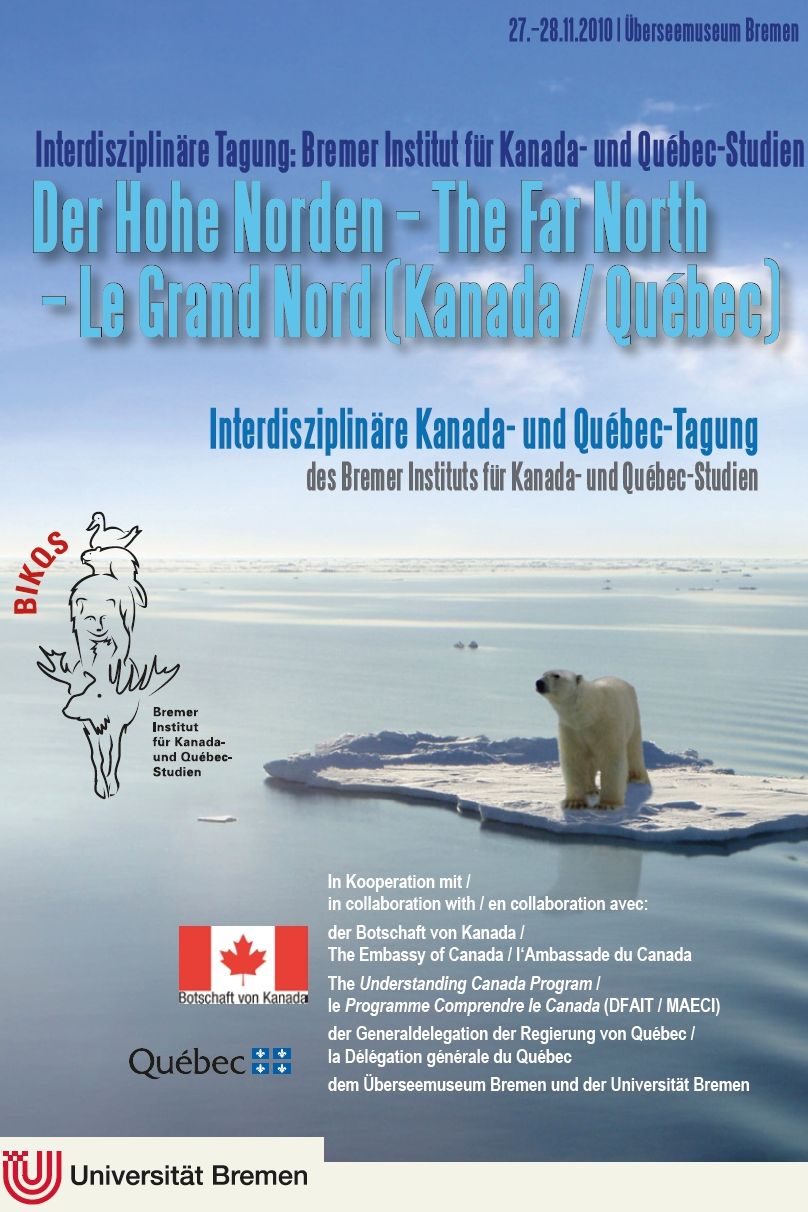
INTERDISCIPLINARY CONFERENCE
27 – 28/11/2010 | ÜBERSEE-MUSEUM BREMEN, BAHNHOFSPLATZ 13
The Far North keeps coming closer to us. It is no longer a remote region that is of interest to only a handful of specialists or adventurers. Its days as one of the last untouched natural paradises are numbered. We are being informed regularly that due to global warming the arctic ice sheet has diminished by almost half in the last quarter-century. We are also confronted with disconcerting scenarios of an ice-free arctic and a dangerous rise of the sea level.
However, while some people are worried about the survival of marine mammals and polar bears, i.e. nothing less than the livelihood of the indigenous population, others spot unimagined chances in recently developed seaways and especially the potentially huge oil and gas reserves in the area. Economic and political rivalries between the neighbouring countries of the arctic, i.e. Russia, the United States, Norway, Denmark (Greenland), and also Canada, have certainly increased over the past few years. The exploitation of further fossil fuel sources will, however, also have a fatal ecological effect whose consequences are difficult to assess.
The idea of an interdisciplinary conference on the Far North thus imposed itself on the Bremen Institute of Canada and Québec Studies. This conference, held at the Übersee-Museum in Bremen on November 27-28, 2010, addressed students from various disciplines as well as a non-academic public. While natural scientists from the Alfred-Wegener-Institute presented the results of their latest research relating to climate change, political scientists and sociologists from Germany and from Canada spoke about the sovereign rights and the future of Inuit societies. This conference dealt with the cultural identities of the North in literature, film, and languages as well as the historical dimension of the region and its people. We also looked at the way in which all of these topics can be dealt with in the classroom.
We not only spoke about Inuit art in a knowledgeable fashion. Participants of the conference were also be able to admire the objects in an art exhibition. In addition, we had the pleasure of seeing a performance of The Parlement of Foules, Bremen University’s own English-language drama group and its director Michael Claridge.
the program

COLLOQUE INTERDISCIPLINAIRE
27. – 28.11.2010 | ÜBERSEE-MUSEUM BREMEN, BAHNHOFSPLATZ 13
Inexorablement le Grand Nord se rapproche de nous. Ce ne sont plus ces contrées reculées où s’aventureraient les seuls amateurs ou spécialistes, et même ses jours comme un des derniers paradis naturels vierges sont comptés. Nous avons l’habitude d’informations comme celle selon laquelle le réchauffement global aurait fait fondre la moitié de la couche de glace de l’arctique, en ce dernier quart de siècle seulement. Et nous sommes alertés par des scénarios d’une région polaire sans glace et les niveaux des mers qui monteraient dangereusement.
Mais tandis que les uns se soucient de la survie des mammifères marins et des ours polaires –ressources vitales des populations autochtones- , d’autres prévoient des opportunités inouies créées par de nouvelles voies navigables et surtout par les gisements, estimés gigantesques, en pétrole et en gaz. Ce n’est donc pas par hasard si les tensions économiques et politiques augmentent entre les États riverains comme la Russie, les États-Unis, la Norvège, le Danemark (Groenland) et, bien entendu, le Canada. L’exploitation de ces sources d’énergie fossiles supplémentaires aurait, à son tour, des effets aux conséquences écologiques dont l’ampleur est difficile à évaluer.
L’idée d’organiser un colloque interdisciplinaire sur le Grand Nord s’est donc imposée à l’Institut d’études canadiennes et québécoises de Brême comme une évidence. Il aura lieu les 27 et 28 novembre 2010 au musée d’outre-mer et s’adressera aux étudiants de toutes les disciplines ainsi qu’à toutes celles et tous ceux qui s’y intéressent. Des scientifiques de l’Institut de la recherche polaire Alfred Wegener nous présenteront leurs résultats aussi bien que des politologues et des sociologues canadiens et allemands qui traiteront des droits de souveraineté ou de l’avenir des sociétés inuit. Nous aborderons les identités culturelles des populations du Nord telles qu’elles s’expriment dans la littérature, les films et les langues, ainsi que la dimension historique de la région et de ses habitants. S’y ajouteront des considérations sur les approches possibles de ces sujets en classe.
L’art inuit nous sera présenté non seulement dans une conférence par une spécialiste en la matière, mais également, en toute beauté, par une exposition. Côté divertissement, The Parliament of Foules présentera un spectacle mis en scène par Michael Claridge.

